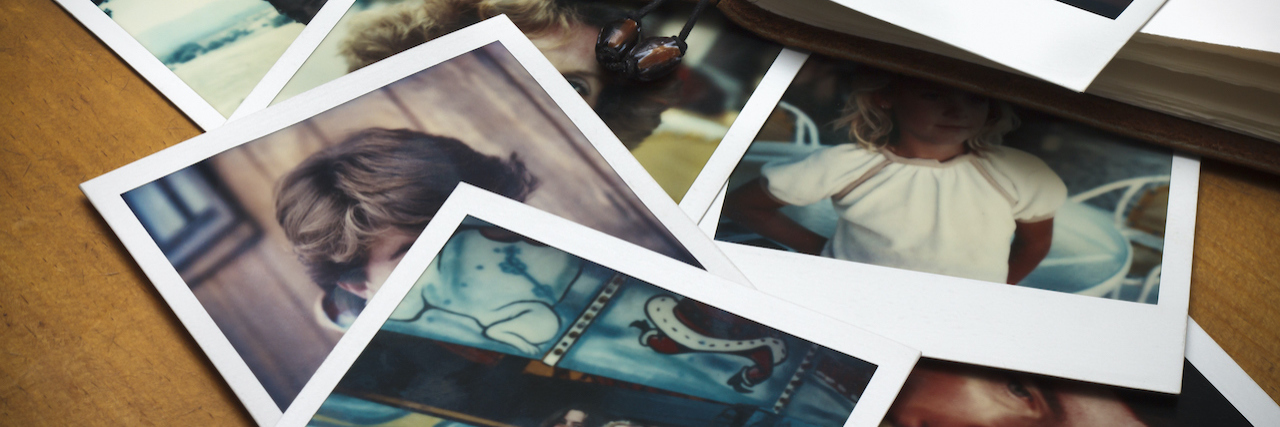My husband mentions somebody’s fiancée or a coworker, and we go through the same conversation.
• What is Bipolar disorder?
“Did I meet them?” I ask him.
“We all went to get roast duck in Uptown,” he says. Or: “Mia brought her to movie night.” Or: “You came to the Super Bowl party at Peter’s house.” Or: “No, I don’t think so.”
“Did I like them?”
“You thought he was funny,” he says. Or: “She invited us to stay with her in Madison.” Or: “You loved them.” Or: “No, I don’t think so.”
I look at photos of strangers. I imagine that face smiling at me, leaning across a table or standing next to me in the potluck line. Asking me to pass the duck skin. In Uptown, at Peter’s house.
Sometimes my husband adds, “You really don’t remember?” And I wonder if something is wrong with my brain. No matter how hard I try, my brain grips onto its missing spots.
I leave a favorite park three blocks down and head in the wrong direction home. I ignore a Facebook message from an acquaintance, forgetting that we used to hang out regularly. My husband reminds me of past anniversary celebrations: our trip to the zoo, a restaurant with three kinds of bread. I panic over seven-year-old bank statements, trying to figure out whether I closed the accounts. I pretend to laugh along when my siblings reminisce over our childhoods.
But maybe nothing is wrong. I’m not in other people’s heads, I don’t know how they hold onto their lives.
* * *
After rounds of ECT, I blanked out remembering the name of a close family friend, somebody I called “tita.” At my next session with my psychiatrist, I frantically described the slip. She asked if it was normal, for me.
And maybe it was. It’s hard to think what I would have forgotten.
I swallow my pills in two handfuls every night. I take a couple pills in the morning, a pill at lunchtime. Chalky white rounds, oblong capsules. I’ve gained weight, I’m nauseous on walks outside. But maybe my body’s changed on its own. I’m still creative. I still write. I go to appointments, I remember where I put my headphones and keys. In my old jobs, I recognized people’s faces, recalled conversations.
What is there to remember about times I was asleep? When I was 18, I spent months at my parents’ house, living inside a rut in my mattress.
My first or second hospitalization, I got out of bed after a string of days I can’t remember. At the hospital, I played cards with other patients.
“You sleep a lot,” one guy said.
“But tell them what happened,” another woman said. She was kind, and I’d muttered to her in the hallway. “Tell them,” she said.
I shrugged. “I’m really tired,” I said. And then I made something up: “I’m catching up on sleep. I couldn’t sleep before.”
* * *
On my wedding day, my bridesmaids’ heels got stuck in the grass. A biker rode through the procession. My godfather drove us to the ceremony in a silver car.
We watch the videos every year on our anniversary. We look through the photo album and guestbook. And maybe this is how I will remember.
I log my activities in a planner, color-coding important events according to category. I take photos of a muffin, so I can remember drinking tea with friends under orange leaves. I don’t want to hold onto these months of pandemic, but I keep notes anyway. A new mattress, Zoom calls with old roommates. Decorating for our stay-at-home Christmas with a white wreath and stockings. I plan to keep a notebook when we raise the kid we are trying to have. Entries every day for the noises they make, their favorite toy. I tell myself I will make time, sleepless and unshowered, to describe their eye color, the date it changes from blue to brown. When they grow up, I will flip to the appropriate entry and say, “That was it, that was when you got started.” They won’t miss any memories. I will fill a room of shelves with my records. I will remember enough of my life.
Getty image via kcslagle

